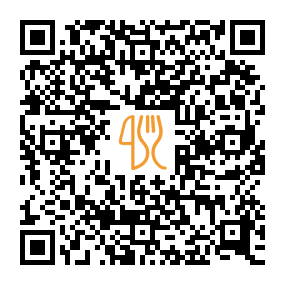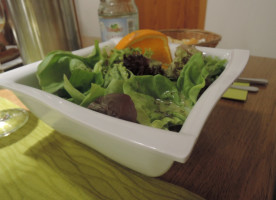Images
ContributeReserve now
Feedback
Contribute FeedbackThey are these small rustic wine bars that make our Palatinate so lovable. Many holidaymakers know this and fall to the wine harvest in autumn in bulk. This is at the expense of their cosiness for many locals of this kind, but it is essential to promote social exchange, as one often sits on a table with the most diverse “regional representatives” of our country. This is also typical of the fold and many visitors find this uncomplicated way of contacting the “simple-dazu-setting” attractive. In our wine bars, this is true and even sometimes part of a basic concept based on sociality. So also in the homey sandstones of Harald and Margit Dyck from Mühlhofen, a district of the municipality of Cheapheim-Ingenheim in the South Palatinate, which is about 500 inhabitants. The small village has gained regional acquaintance through its annual wine festival in the wine farms. For Weinkenner, the place has been considered a secret tip at the latest since the very talented Jungwinzer Stefan Bietighöfer. However, the family winery Dyck, which has joined the Bioland Association since 2004 and therefore has been operating organic viticulture for over 10 years, is also relying on quality in the production of its wines. Handlese, selection, traditional mash fermentation and wooden barrel construction speak a clear language. As usual with many Palatinate winemakers, a small wine bar is also operated here. This has existed since 1988 and is led by Margit Dyck. Her husband Harald, on the other hand, takes care of the quality of the red and white crests as a cellar master. A real family business that welcomes its vinophilic audience from Thursday to Sunday from 17:00. If I walk from my home town of Steinweiler on foot over the field roads to the west, I arrive in a good three-quarter hour before the rustic wooden door of the estate in the town center of Mühlhofen. An undeniable advantage when it comes to tasting Harald Dyck's wine program. A colleague from the Badisch and I did not do that on Thursday evening. And yet we were impressed by the wine offering and the just sensational value for money. It was a spontaneous visit, which is why we had not reserved when we entered the guest room at 7.30 p.m. Where the horses were standing between the old sandstone walls and were scary, today you sit comfortably on luxuriant wooden tables. The former Kelterhaus and the former Tenne were very tastefully reconstructed and already at the entrance to the good Stube welcomes one of these original rural hospitality, which invites you to stay. Unfortunately, there was no table left to stay. So we were put to it in a short time. This did not bother and belongs to it, especially since one of the parties paid little later and thus provided more space. The service was full of hands this evening. Many regular guests were apparently present in the wine room, because I saw them take a seat on the one or the other table to attend the sociable drive from close proximity. This naturally also delayed the ordering of food and beverages. So you should take some time, because the ordering process can already extend a little. I also had to remind the nice woman of the service (they managed the evening in the wine room alone! of the ordered mineral water, which was certainly due to the general hustle and bustle in the restaurant. Among modern hanging lights we sat on comfortably padded wooden chairs (the interior was apparently only recently renovated and ordered a summery Chardonnay-Sauvignon-blanc-Cuvée (3,10 Euro for the well-in-one district, whose fruity freshness was convincing. The quarter prices are really highly consumer-friendly at Dyck. Many are still below the 3 euro mark (and that for organic wines!!! , which is now a gastronomic exception. On the menu you will find the well-known “Pfälzer-Weinstuben-who-is-who” in the form of Bratwurst, Leberknödel, Saumagen and Rumpsteak. The latter I had eaten there a few years ago and therefore knew about its quality. With crispy roast potatoes as a supplement and a fresh salad, it stands for 14.80 euros in the map and is thus the most expensive dish of the wine bar. Many cold dishes are available for smaller hunger. Sausage Salad, White Cheese, Swarm Cheese Salad, Hand Cheese and Co. offer a solid basis for wine. My colleague opted for the Hausmacher Platte (6.50 euros), on which a slice of liver and blood sausage, as well as dizzy skins (among other things I think was known as a “study”. With delicate peasant bread a very delicious treat and adequate wine companion at the same time. I chose the “Italian Schnitzel” (11.80 Euro incl. Supplemental salad from the monthly card. Instead of pommes, it should be those roast potatoes. The two chips were very delicate and juicy. Their “copper door” made of fruity-pid tomato sauce and crumble cheese a tasty and saturating supplement. The salad came forward and consisted of freshly grated raw food with a few green or red leaves on top. A balanced herbal vinaigrette acted as dressing. In addition to us, Rumpsteak and Margit’s Special Toast (8,20 Euros, a very lush, cheese-baked dish, which seems to enjoy cult status here. But there was no room left in our stomachs. At the end, we shared a quarter of the rare early burgundy (4.50 euros), which is being developed here in the barrique. A gentle designer who even promoted our very good entertainment until then. I'm looking forward to taking my way to this wine room in a couple of weeks and then not taking into account my rideability. In Harald Dyck's wine portfolio there is still something to discover.
Always cozy, good wines and food, child-friendly are happy there
Delicious food, best service, totally nice people, recommended at any time
This wine room is simply tip : Super super super super super
Today we have used the pick-up service for our food.... Was really delicious and the prices are okay.... I hope Corona is soon history and we can eat again in the original, highly recommended economy....
Full Menu
More information
QR-code link to the menu








